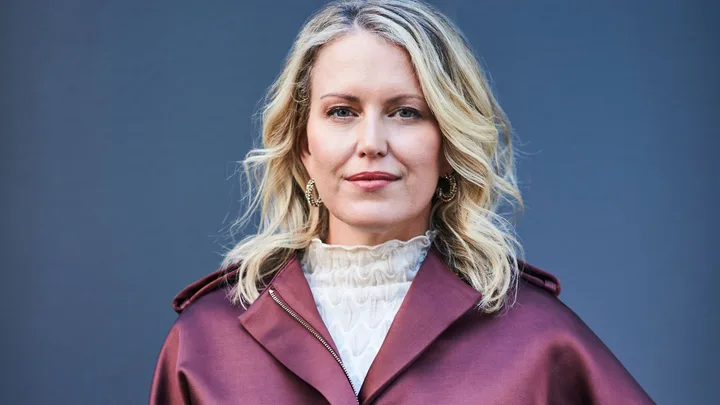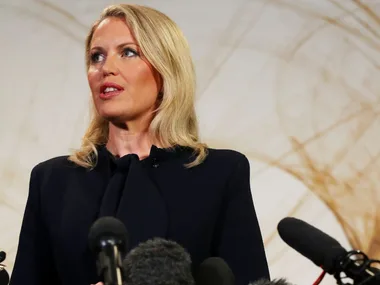Jennifer Robinson has spent many hours describing home. From the salty spray of Seven Mile Beach to the bush ballads of birds at Bomaderry Creek, stories from her sleepy home town on the South Coast of New South Wales were a prized commodity for her high-profile client and fellow Australian Julian Assange during his years in exile. For 12 years, as the WikiLeaks founder moved from political asylum in the Ecuadorian Embassy to a high- security London prison, he would beg his lawyer for stories of home.
On June 26, Robinson brought Assange back to Australian soil after a politically charged legal battle. Assange had been fighting extradition to the United States for publishing leaked government documents, and at one point was facing sexual assault charges in Sweden, which were eventually dropped.
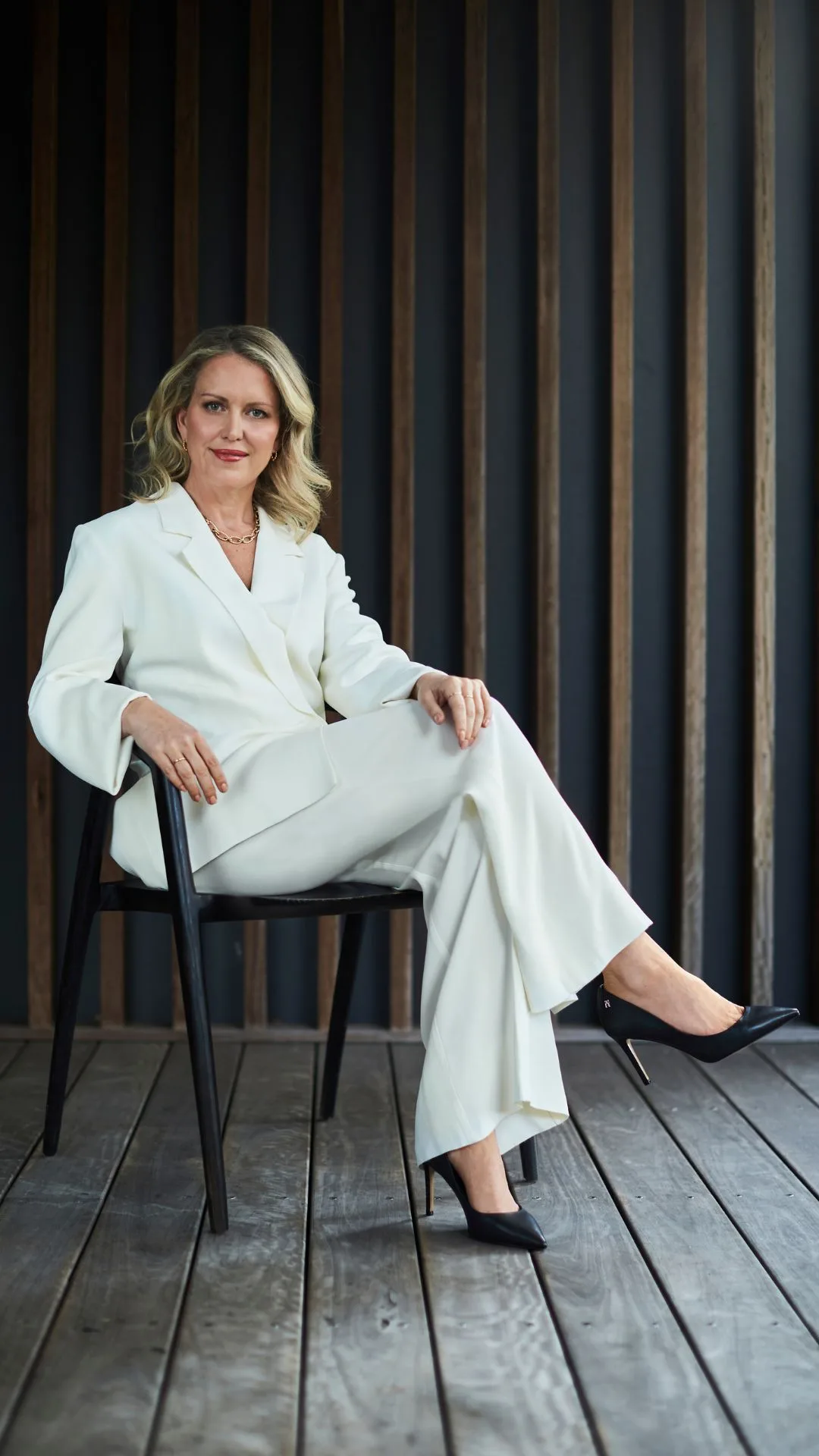
The esteemed human rights lawyer has been taking on untouchable cases for the past two decades, and she represented Amber Heard in her ex-husband Johnny Depp’s UK libel lawsuit against The Sun newspaper in 2020. When Heard received death threats, so did Robinson. But nothing will silence her. She’s a passionate advocate for Australia’s public education system, First Nations rights and ending domestic violence.
Fresh from the fight for Assange’s freedom, Robinson stands on the familiar shoreline for her marie claire shoot. It’s only for a fleeting moment: as soon as we wrap, she’s on a flight back to the UK.
There, she sits down with her long-time friend Kathy Lette, the author of 20 best-selling books including Puberty Blues and The Revenge Club, for a candid conversation about public scrutiny, being the A-list’s go-to lawyer and “swinging from chandeliers with cocktails in our teeth”.
Kathy Lette: You grew up on the South Coast as a surfer girl, which is a good analogy for you as you never sink or flounder when you’re thrown in the deep end. Do you remember how I threw you in the deep end?
Jennifer Robinson: I do. I had just started working for your then- husband [barrister, academic and author Geoffrey Robertson] and he invited me to your house. I was one of the first guests to arrive and I walked in and saw Danni Minogue and Stephen Fry. But you weren’t home!
KL: I was really impressed because you became the hostess that night and we’d never met! You were quipping and quaffing and I thought, “This girl’s a keeper.” You endeared yourself to me straight away. You received a scholarship to study civil and public international law at Oxford University. That would not be easy in a very male-dominated legal world. How did you cope?
JR: You’re right, most scholars were men from private schools. The sexism and misogyny was like nothing I’d ever experienced before. I’ll never forget the speech at my welcome dinner, where we were told, “Our men have done all these wonderful things and we’ve also let women in too, so look around, fellas, because you could be sitting next to your future wife.” I was shocked. The history of the law is utterly male-dominated. While it’s changing, it’s not changing fast enough.
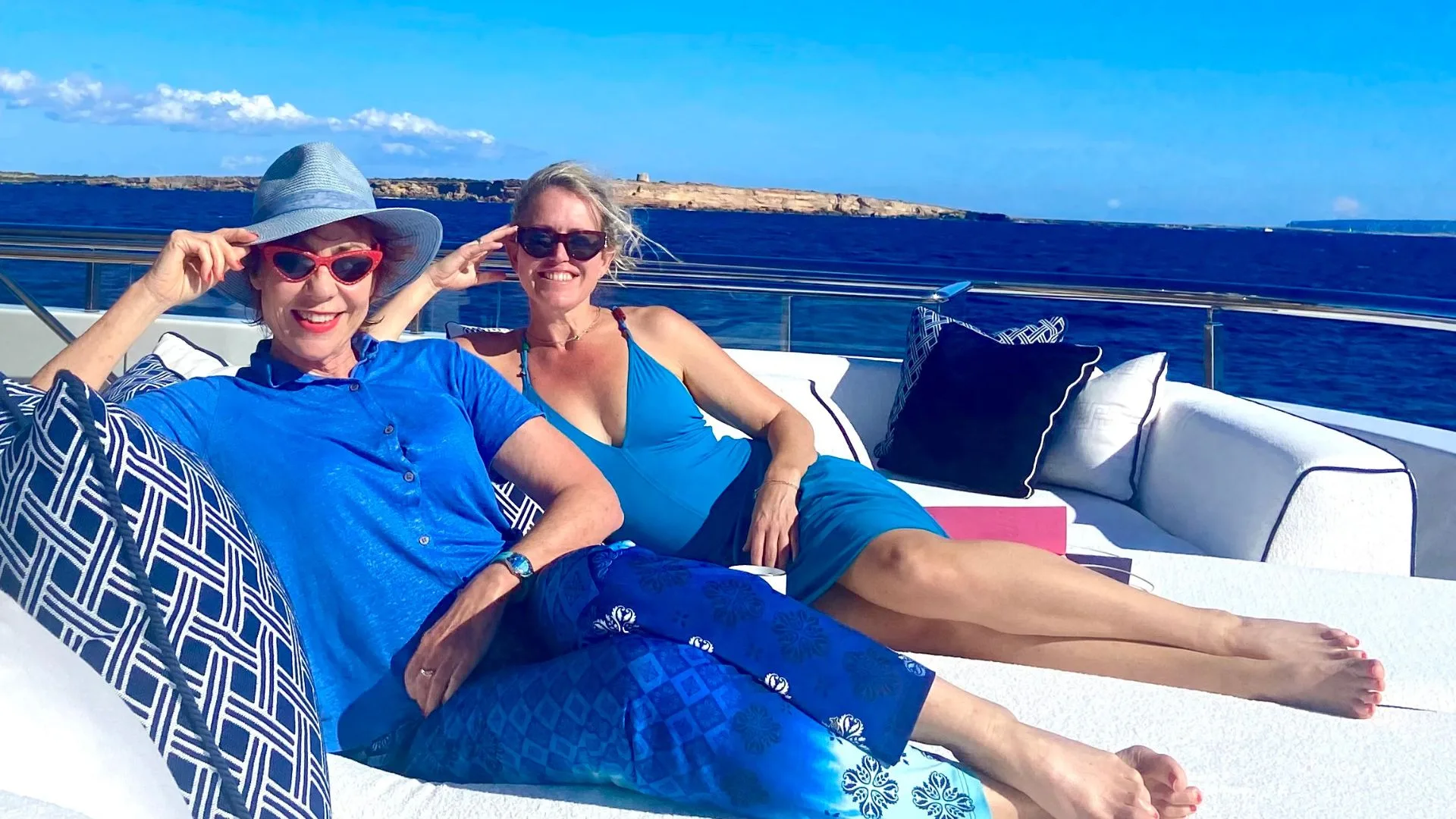
KL: Even the word “testament” comes from testicles! The odds are stacked against us from the beginning. It’s amazing how far a little surfy girl from Berry has come – you’ve shown up misogynists at Oxford by surfing your brain waves. As you know, I left school at 16. The only examination I’ve ever passed is my cervical smear test. But you are a great advocate of public education. Why?
JR: I wouldn’t be where I am today without public education. I want to make sure that kids like us, Kathy, have the same opportunities that we had. Our public schools are grossly underfunded, while private schools are receiving millions in government funding, meaning kids from marginalised communities are being even more marginalised. That’s wrong, and we have to put an end to it.
KL: We should ban all private schools. Jen, when we first met I also recognised you as a fellow feminist. It feels now that women’s rights are slipping backwards around the world. I was appalled to learn the other day the American female born today has less rights over her body than her grandma. Your brilliant book How Many More Women? addresses these issues, and the [updated, unredacted version] is out in September. Have things got worse, better or a little bit of both?
JR: The reason I’m a feminist and chose to write the book is because of my grandmother. She ran domestic violence refuges for decades and broke down after seeing one too many women killed. It’s so depressing reading the headlines about the domestic violence rates, but we need to talk about it. One thing I really wanted to get across in the book is the importance of protecting women’s right to speak about their experiences, because we can’t properly fund or make policies around gendered violence if we don’t know the extent of the problem.
KL: Every woman should read it because it gives you the language and empowers you on how to address the issues. Men should read it because it’s not just our problem. Nothing’s gonna change until men join us at the barricades and get into the discussion.
When I was married to Geoffrey, we had lots of famous people hiding in our attic: banned poets, exiled PMs, tabloid-dodging popstar, James Hewitt and Julian Assange. Out of all of them, Assange was the most fascinating. You met him through me and you’ve been a fierce defender ever since. The way you got him out of prison reads like a thriller. Can you elaborate?
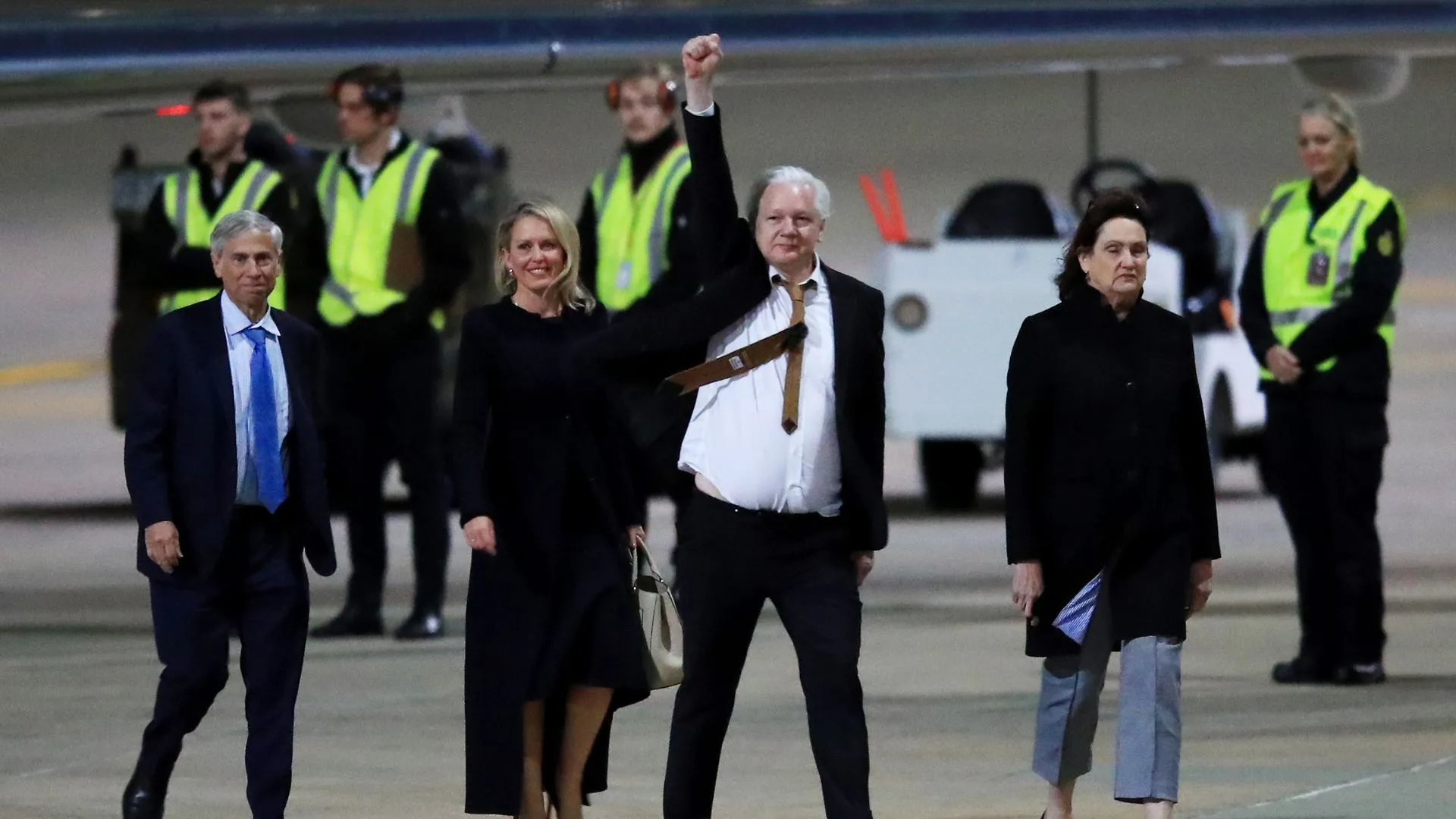
JR: It’s been a long 14-year legal battle, and a combination of political advocacy, public advocacy, lobbying, and the law that got him out of prison. For over a decade ago I have been briefing the government and members of parliament and we got nowhere. The polling showed that Australians wanted him brought home, but it wasn’t until Prime Minister Albanese came along and decided enough was enough.
KL: You always said that Julian didn’t steal, he published. As did The New York Times and The Guardian. It was such a huge relief for every journalist and every publisher in the world when you got him out of prison, because all of our press freedoms were threatened.
JR: Julian has done an incredible thing to revolutionise journalism and the way we talk about the “right to know”. That wasn’t spoken about before WikiLeaks. He revealed evidence of war crimes and human rights abuses – and was being prosecuted for it. I couldn’t walk away from that injustice. Fourteen years is a long time to stick with the case and a client through some very difficult political times. You couldn’t make up the story of how we got him out. I certainly never thought I’d be on a private jet with Julian Assange and Kevin Rudd.
KL: There’s a movie in that. I’ve already cast Margot Robbie to play you, but I’m not sure who would play Kevin Rudd. When I heard that you were on that plane, I was worried it would make you a target. During the Amber Heard case, that was also really terrifying. We saw a very ugly side of toxic masculinity. Do you feel you have to strap on a bulletproof bra when you go to work everyday and do you ever feel scared?
JR: I was accused by the US government of putting lives at risk and risking terrorist operations by virtue of my representation of Julian Assange and that resulted in me receiving death threats in London, and I was unlawfully spied on. Generally, as a lawyer, I feel relatively protected – and what happened to us in the Assange case shows why its so important to protect lawyers rights and everyone’s right to a defence.
But in this new online space as a woman, it’s shocking the number of death and rape threats we get for simply having a public voice – and that I have received as a woman in the law with a public voice. I didn’t get anywhere near the online vitriol that Amber Heard received, including the death and rape threats towards her and her baby. I can’t imagine what Amber has gone through. But it’s happening to women everywhere. I won’t be made to be silent, but we have to do something about it because women are being pushed out of public spaces and we need more female voices.
KL: Any woman who puts her head above the parapet is a target. Even as an author I’m a target, but whenever I get trolled I picture these guys living in their mothers’ basements, their keyboards covered in Cheezels and jism. You wouldn’t waste any time engaging with them in real life. But, Jen, there you are: Assange, Amber.Can’t you ever take a nice little case like neighbours disputing over a fence boundary? I mean, even your work in West Papua must make you a target, right?
JR: I went to West Papua as a student when I was 21. I decided to go there to work with an NGO that was interested in issues about Indonesia’s unlawful occupation and human rights abuse by the military. While I was there, I worked on the trial of political prisoner Benny Wenda, who is leader of the independence movement. I was followed by military intelligence, threatened by police with arrest and deportation, and threatened by Indonesian nationalists and Islamic fundamentalists in the street because of my work defending Benny and the rights of indigenous Papuans.
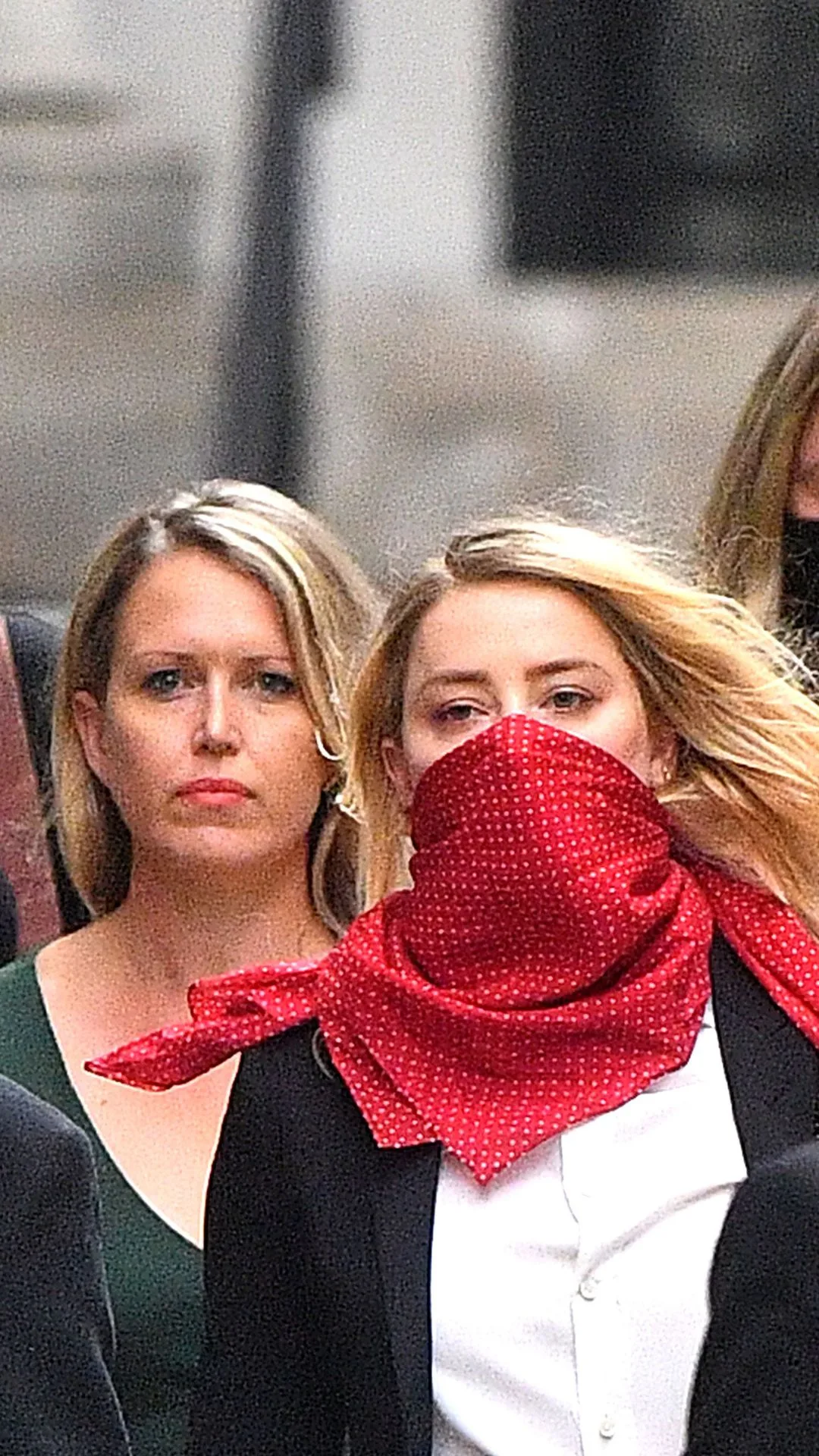
Benny ended up escaping from prison, and I helped him and his family move to the United Kingdom. He’s a leader in exile now and has been nominated for the Nobel Peace Prize. I spent my life studying Indonesia, but, sadly, because of that work, I can’t go back to Indonesia. It’s too risky for me to go back and it’s really heartbreaking. That’s the consequence of the work that I do. I’d also love to visit Iran, but I can’t travel there because of the nature of my work.
KL: Sadly for you Jen, because of your work it’s an endlessly shrinking world. I’m sure the world’s global warming is caused by all these politicians talking endless hot air about the problem. The Pacific islands are the first to feel the effects of rising sea levels, but tell me about your Vanuatu case at the International Court of Justice [ICJ], because you’re also taking the world’s biggest problem to the world’s highest court.
JR: I’m really proud of that work. I represented Vanuatu in the 2017 Chagos Islands case, which was their first ever appearance in the ICJ – and now they are leading the world in taking climate change to the ICJ. Vanuatu suffers amongst the worst brunt of climate change. They’re having increasing storms, which knock 60 per cent off their GDP each time there is another massive climate induced storm. It’s a huge issue for the Pacific and for low-lying islands around the world.
Vanuatu decided to take the issue of climate change to the ICJ. But for those who don’t understand the process of the court, you can’t just go and file a case like this. Vanuatu had to get a resolution passed through the UN General Assembly, supported by a majority of all states.
We advised Vanuatu in the process – and we did it. It was wonderful to see this little island state get it through the UN General Assembly by consensus – the first time in history an ICJ Advisory Opinion resolution was passed by consensus. Not even China or Russia or the US voted against the resolution and that’s a big deal when it comes to climate change. For Vanuatu it was a huge diplomatic coup which superpowers haven’t before achieved – and hopefully will lead to a court decision that pushes the world towards more ambitious climate action.
KL: You’re like a superwoman. It’s about time you started wearing your underpants on the outside of clothes. I’m going to design a little costume for you. Now, I also know that First Nations justice is so important to you. Tell me a little bit about the David Dungay Jr case.
JR: We all, as Australians, have an obligation to First Nations people to do better. For me, I’ve committed part of my practice to First Nations justice issues. Like many Australians, I was devastated by the unsuccessful outcome of the referendum last year. I really believe Australia needs not only recognition in our constitution for First Nations people, but a truth telling process, so that every Australian is taught about our country’s dark history in school.
KL: We learnt nothing about it!
JR: Nothing. We learnt about Captain Cook at school. But what we didn’t learn about was the massacres and displacement of Aboriginal people. If more Australians understood this history, people would be better informed and more sensitised to these issues and perhaps better understand the lasting trauma caused, its ongoing effects and why we need to address it today.
The first big case I took on was David Dungay, a Dunghutti man who was killed in Sydney’s Long Bay jail in 2015. It was this case that sparked the Black Lives Matter protests in Australia, because like George Floyd in the US, David shouted a number of times, “I can’t breathe, I can’t breathe, I can’t breathe,” before he was killed by prison officers.
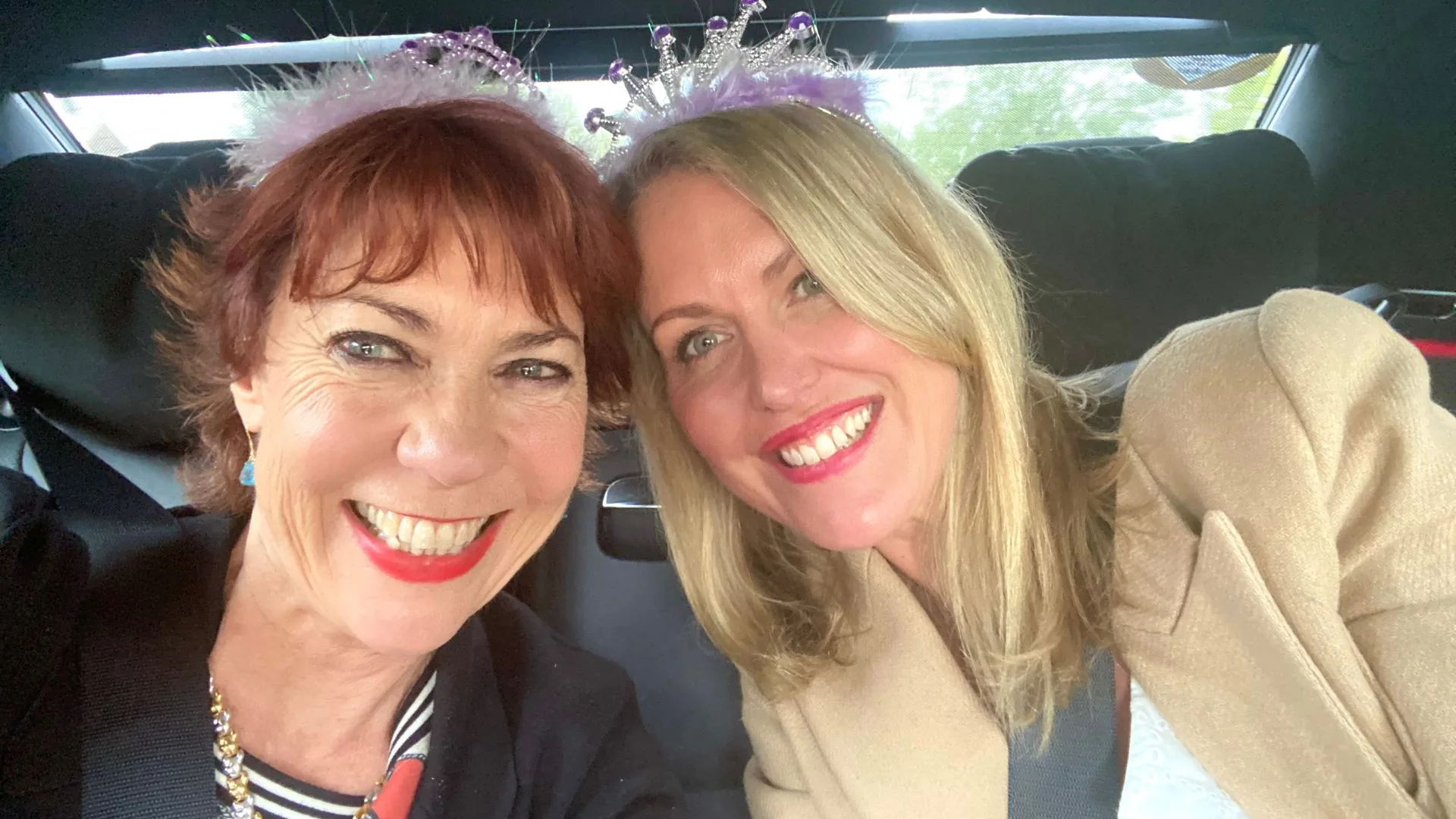
The rate of Aboriginal deaths in custody is alarming. And yet here has never been a successful prosecution of a white prison or police officer for killing an Aboriginal person. The rates of prosecution are very low. Under international law Australia has an obligation to investigate and prosecute in order to deliver justice to victims and deter future killings. That’s what our criminal law is for.
There have been no criminal prosecutions in David’s case. David’s mother Leetona has been campaigning for years for justice for her son David – and to prevent it happening to another Aboriginal family. We’ve taken this case to the UN Human Rights Committee because Aboriginal families are not getting justice in Australia when their loved ones are killed in custody. We want to set a precedent that makes it clear to Australia that it is their international obligation to prosecute cases like David’s, because we have to deter the abhorrent rates of Black deaths in custody in Australia.
KL: I remember the day there was a demonstration at Long Bay because my daughter, Georgie, who’s like your little sister, went with you to that protest. The sisterhood is of huge importance to us, Jen. Women are each other’s human wonderbras uplifting, supportive and making other women look bigger and better. You are a human Wonderbra to many women through your mentoring.
JR: Well women like you are very important to me, Kathy – you’ve been a huge support to me and so many other women. Women supporting women, particularly in a man’s world, is so important. And we have to give back and make it easier for those who come up behind us. I always try to mentor young women coming up in the law, particularly women from public school backgrounds. One of the most rewarding things that I’ve done is facilitating others to do this work. Because if you multiply, more good work is done – and the more women in the law, the faster the culture will change.
KL: Jen, what readers will want to know is you’re so busy, do you hire someone to have fun sex and eat on your behalf? I know we’ve had so many wonderful nights together swinging off a chandelier with a cocktail between our teeth, but what are your favourite ways of relaxing?
JR: [Laughs] The nights we have together are such a relief from the heaviness of what my work can be. Getting back to Australia is so important to me, it grounds me. I always find time for fun around work because life is too short.
KL: Your world is so serious that when you are having fun and laughing with your girlfriends, it’s like strapping a giant shock absorber to your brain.
JR: I’m not your typical lawyer; and I am not shy about talking about the importance of having fun in my own life.
KL: In many countries, women aren’t allowed to have fun. Having fun is actually political. We’re making a statement, Jen.
JR: We’re exercising our freedoms, Kathy!
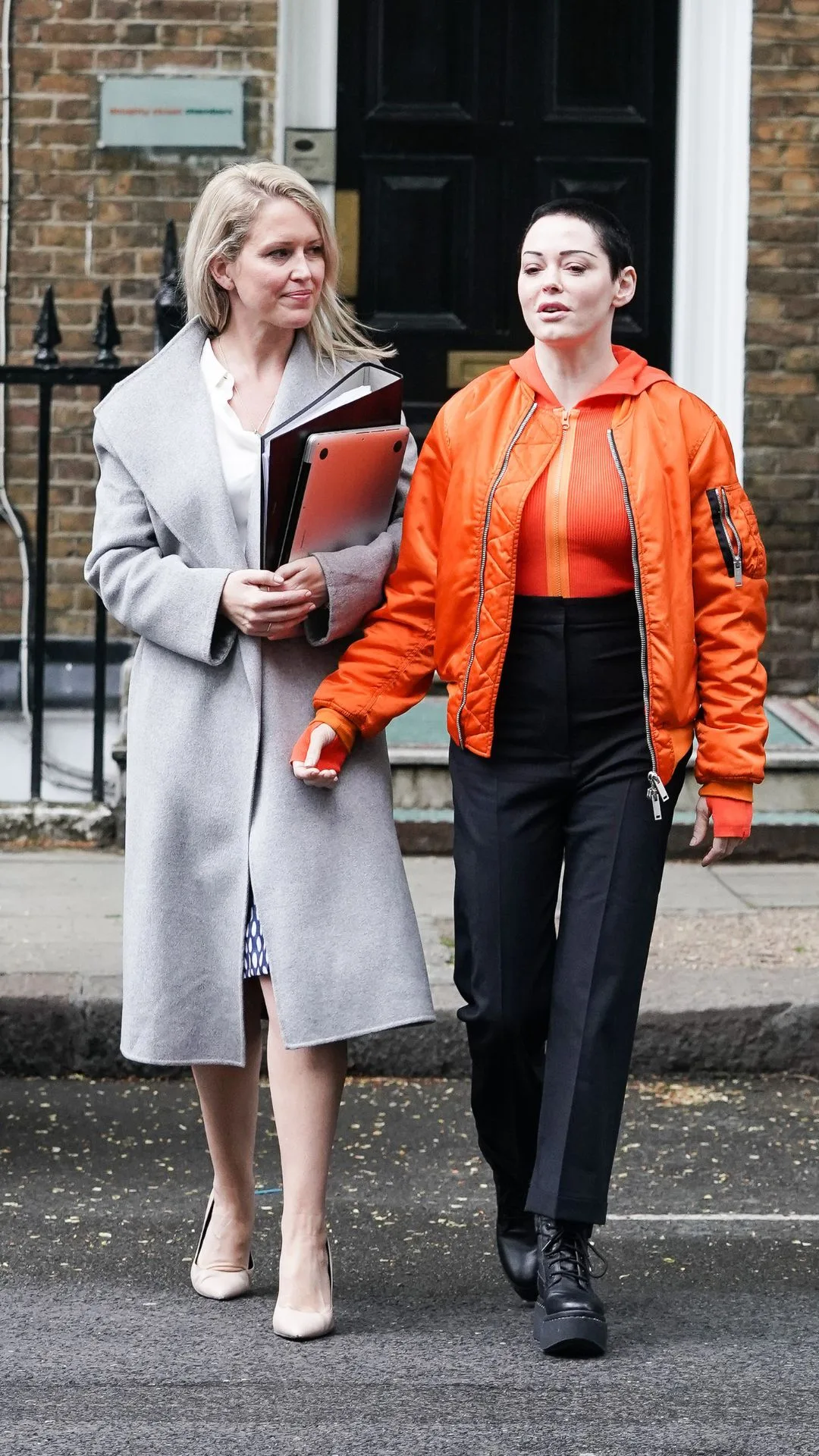
KL: I speak for myself, but as someone from an older generation, we thought we could have it all. In reality, we just ended up doing it all. Maybe for your generation there’s another solution. Do you think women can have the big career and the family?
JR: Yes, but I think it’s hard and I think we have a lot more work to do to ensure women can have it all and continue to thrive at work, if they choose, after having children. That’s where the rubber hits the road on equality.
KL: A woman’s work is never done… not by men anyway. If you were to be prime minister, what would be your number one thing that you would do? Personally, I would put in a pink lane on the highway for working mothers to get to and from work and school faster than everybody else. How about you?
JR: Equal pay and better support for working mothers to better protect women in the workforce and ensure real equality. We’re not going to see more women at the top of every profession without more support. Funding public education and initiatives to end violence against women would be up there too – and more ambitious climate action, and human rights protections for all Australians…..I could go on and on!
KL: If you go on to be prime minister you have to promise me that I can come and hang a disco ball at Parliament House so we can combine work and fun. What about if you were a man for a day, what would you do then?
JR: I would start a men’s-led initiative to end violence against women.
KL: Well said. I would love to try to pee standing up and also automatically get a promotion and a payrise for no extra work. Now, hurry up and get into The Lodge. No pressure, Jen, but we’re counting on you darling.
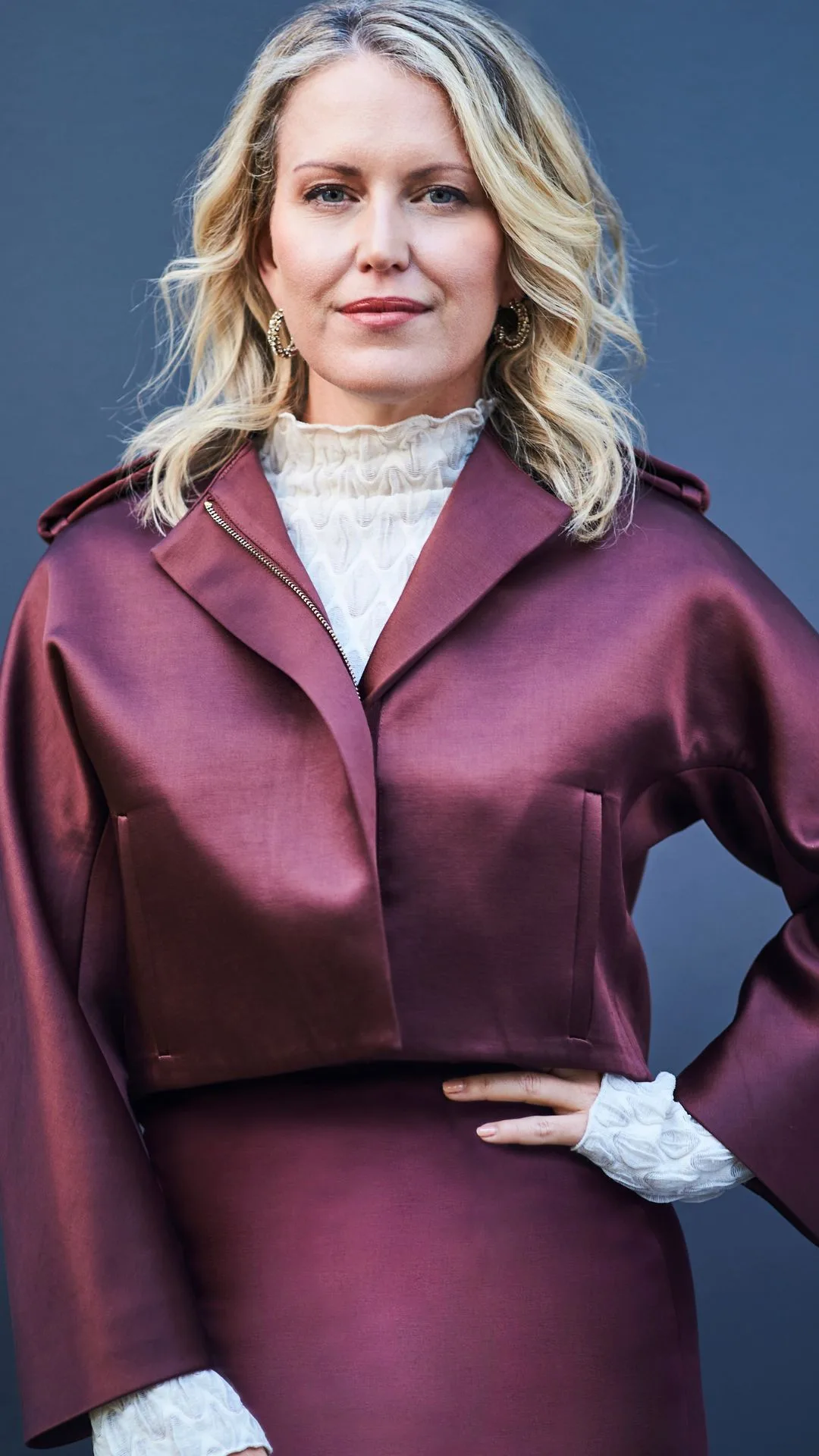
Jennifer Robinson will participate in thought-provoking events hosted by Florence Guild Presents during October, in conversation with CEO Soren Trampedach. Get more information on her Sydney and Canberra and Melbourne shows here.
